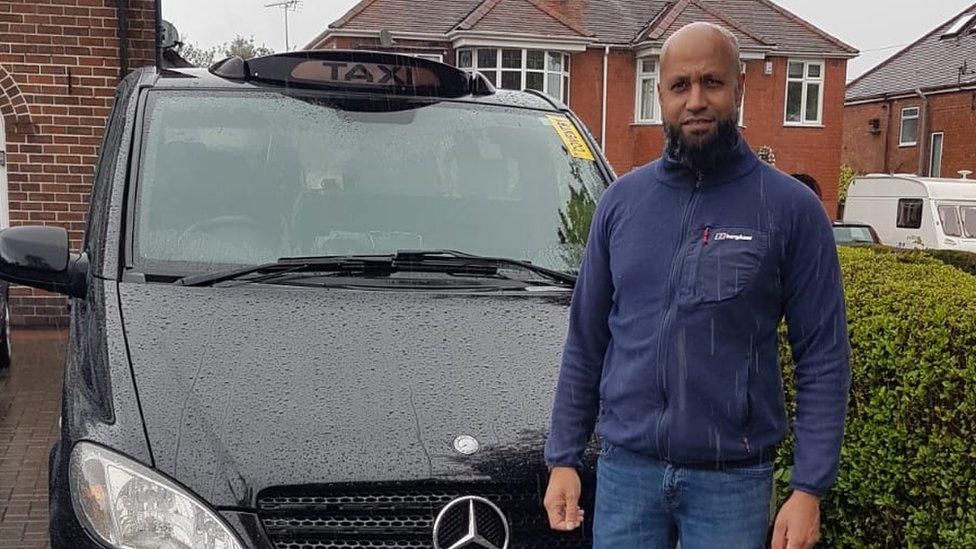Coronavirus: School transport Covid-19 testing call
- Published
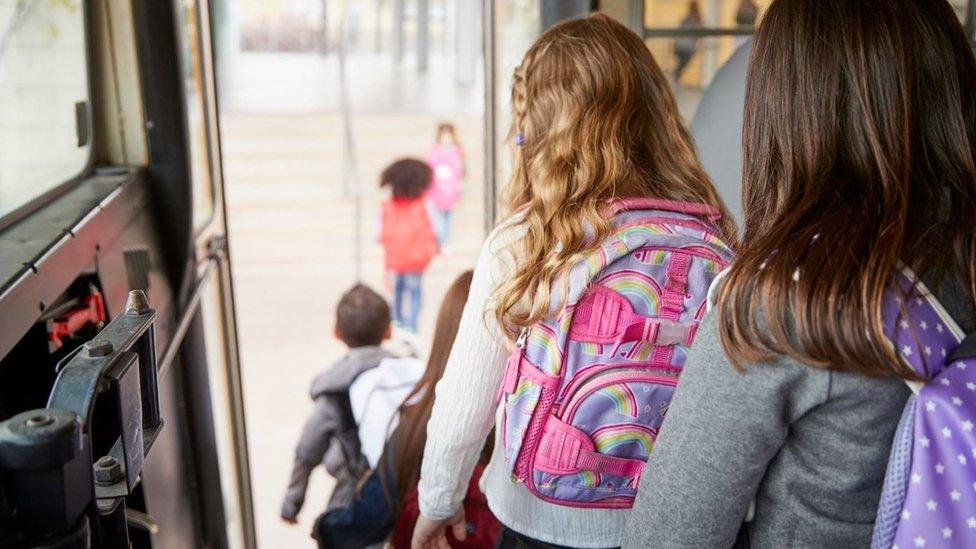
More than a third of secondary school children in Wales go to school on a bus
Calls are being made for school transport workers to be tested for coronavirus when children return to the classroom in Wales.
A taxi driver association wants cabbies to be routinely tested for Covid-19 to ensure "everyone is as safe as they can be" when schools return on 29 June.
The Tories have "concerns" about what help there is for transport providers.
Guidance for "challenging logistical transport issues" will be published by Welsh Government next week.
The government has warned that public transport passengers might have to pre-book bus and train tickets in future to help prevent the spread of coronavirus.
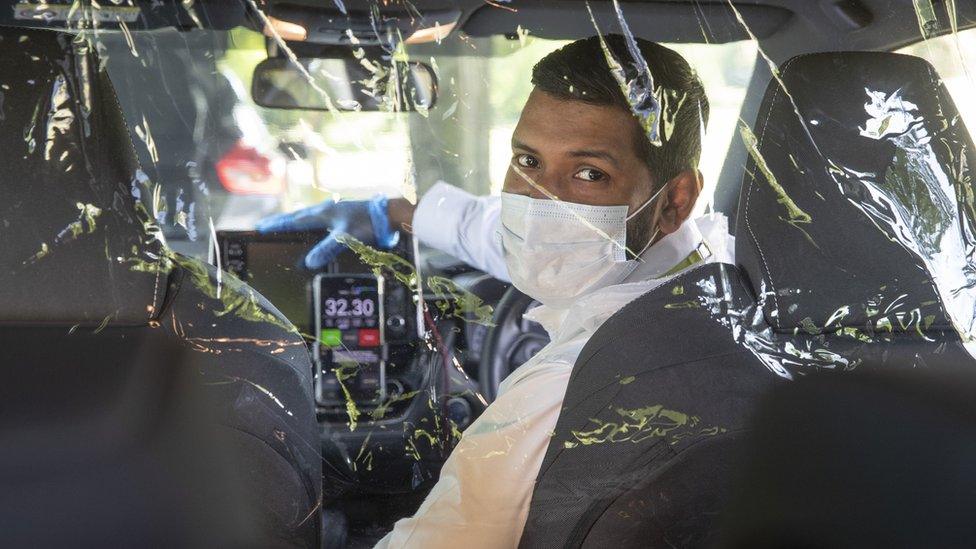
Taxi firms like Dragon in south Wales are taking steps to protect drivers and passengers from coronavirus
School transport providers now face similar challenges to ensure adequate social distancing is in place to "keep children, staff and the community safe."
Schools and councils are now discussing how the return in three-and-a-half weeks time is managed as transport providers await "what is required" of them.
Caerphilly County Borough Taxi Drivers Association, which has about 140 members, wants cabbies to be tested to "ensure the children are as safe as possible from catching or spreading coronavirus."
"Some of the children taxi drivers take to school are vulnerable and may have health issues," said association secretary David Miller, 53, who has sent an email to the Welsh Government voicing his concerns.
"In between taking children to school in the morning and picking them up in the evening, drivers may have half a dozen jobs and see a dozen people.
"Yes we wipe the cab down thoroughly between fares but to reduce the risk of Covid-19 spreading, we, like teachers, should be tested routinely - because we are seeing as many different people that day as they are - sometimes more."

Toni Charlton is happy with her transport provision for daughter Katie
About 5% of the approximately 200,000 secondary children in Wales get to and from school in taxis - like Katie, who has Asperger's syndrome.
Mum Toni Charlton said she had "no concerns" about her 18-year-old daughter, who travels an hour a day from Chepstow to a specialist school in Monmouth.
"The taxi company are very supportive with her needs so I can't see anything changing," said Toni.
"She travels on her own with just a driver so can sit in the back for the distance side of things - it's just going back to school I am waiting to hear how they are hoping to do things.
"As not every child in the school has the understanding of the dangers of everyday life, let alone life as it is at the moment."
How will the reopening of Welsh schools work?
Travelling by bus is the most common way pupils get to and from secondary school, with more than a third using public transport, latest figures show, external. About 5% of Wales' estimated 270,000 primary school children travel to and from school by bus.
Pupils from all year groups will be able to return to school "for limited periods during the week" with only a third of pupils in school at any one time, Education Minister Kirsty Williams said on Wednesday.
Year groups will be split into smaller classes, with staggered starts and ends to the school day, which will pose an "added logistical challenge" for school transport providers.
The group that represents the bus industry said it was "very disappointed" the government had not given them the heads-up before the 29 June return announcement but said "guidance" would be published next week.
"No one knows exactly how many children will go back to school and in what order," John Pockett of the Confederation of Passenger Transport Wales told BBC Radio Cymru.
'Servicing the buses takes half a day'
Edwards Coaches have to deal with that "complex, unique but unavoidable headache" as they have to mobilise and service their 300 buses, ready to serve 180 schools and 6,000 pupils in five south Wales authorities.
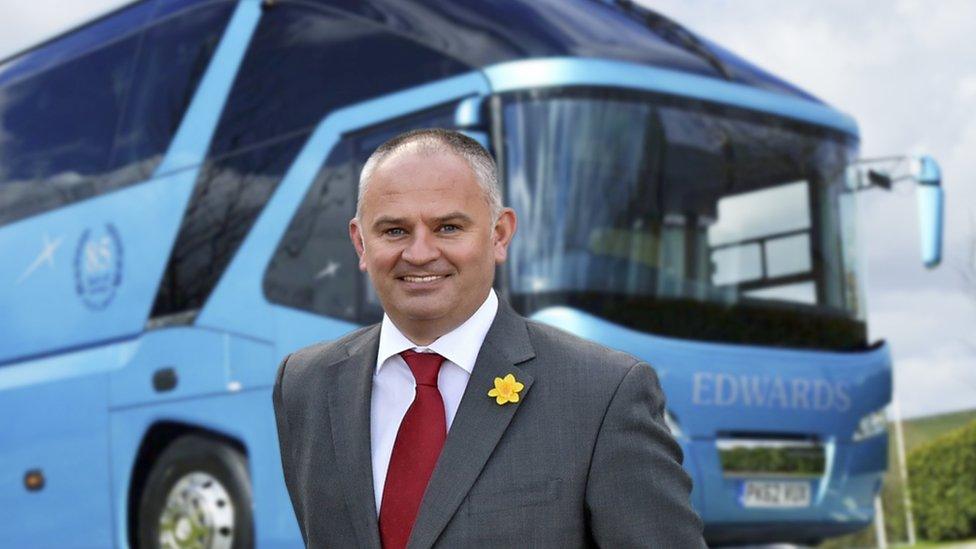
Edwards Coaches in south Wales is one the UK's biggest school transport providers
Most of their 500 staff have been on furlough since lockdown started in March, while their fleet of vehicles at their Rhondda Cynon Taff headquarters in Llantwit Fardre have been "mothballed".
"We are waiting for direction from the local education authorities of what they want from us," said commercial director Jason Edwards, 49.
"That's not just working out the logistics of staggered starts and shortened school days, but making sure everyone is safe. We'll add protective screens for the driver's cab and ensure social distancing can be best maintained.
"But before we do anything we need to simply mobilise the fleet, service the buses - which can take half a day - because they have been doing nothing since March. It's a mammoth task but we will have to deliver."
The company had been paid an income retainer from the local authorities they serve - Caerphilly, Cardiff, Newport, Swansea and Rhondda Cynon Taf - of, on average, 75% of its contract payment so the firm "can be ready" when councils need them.
"Without that lifeline, I dread to think what would have happened," added the father-of-two, now helping run the 95-year-old family business .
Taxi firms have also had similar retainers from local authorities to keep companies afloat during the hiatus.
Cabbies are now thinking about how to adhere to social distancing rules when space in the cab is tight and they usually pick up three children and a school escort.
"Questions have been asked about social distancing and where children and escorts are going to be positioned in the vehicles in relation to the driver," added Mr Millar, a cabbie of 20 years.
"The bottom line is we want to do what's best for the children and our families - and ensure we are all safe. We want to ensure the children are as safe as possible from catching or spreading coronavirus."
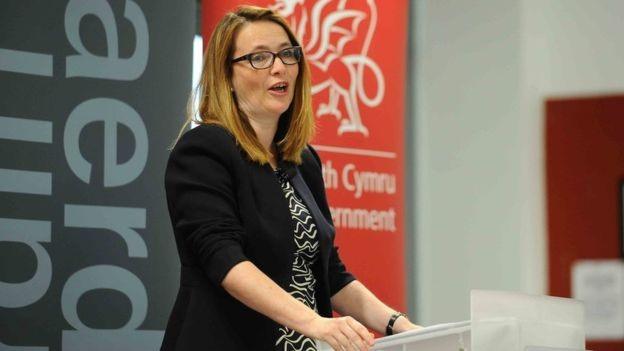
Kirsty Williams's two teenage daughters use buses to get to school
'My daughters rely on the school bus'
The education minister's two teenage daughters travel 25 minutes each way to school on a bus from her rural home near Brecon in Powys.
"They are reliant on transport and this is one of the reasons why we're having to limit the numbers in school," Mrs Williams told BBC Radio Wales.
"We will have a limited number of children in school... that's not only to manage the risk successfully within the school, but it helps us address some of these really challenging logistical transport issues."
But the Welsh Conservatives have asked Ms Williams what "practical assistance relating to school transport" is being provided.
"There are many, many questions to be asked," said the party's education spokeswoman Suzy Davies.
"Including whether bus and taxi staff will be tested, how vehicles will be cleansed, and how much funding - and from what source - will be allocated for school transport.
"I understand from various sources that it appears no, or very limited, discussion with bus and coach operators took place before the announcement.
"Some companies may have gone bust, many may have furloughed staff, some may have lost staff. Will there even be sufficient vehicles and staff to take children to and from school?"
Chris Lawrence says there is too much uncertainty to send children back to the classroom


Plaid Cymru said the the Welsh Government's decision to send children back to school at the end of June has "created several challenges".
"We should allow the experts to choose the best and safest way of operating within the guidelines," said Plaid's education spokeswoman Sian Gwenllian.
"Always prioritising the health and well-being of pupils and public transport workers."
Plaid's plan was to reopen schools in mid-August - in the middle of the summer holidays - as they claimed it "would carry with it a decreased risk of transmitting the virus".
Wales' chief medical officer admitted on Thursday he would have preferred schools to reopen in August too but said it was "not attractive to the unions."
Parents who choose not to send their children to school will not be fined and pupils who fall into the shielding category will continue learning online.
- Published4 June 2020
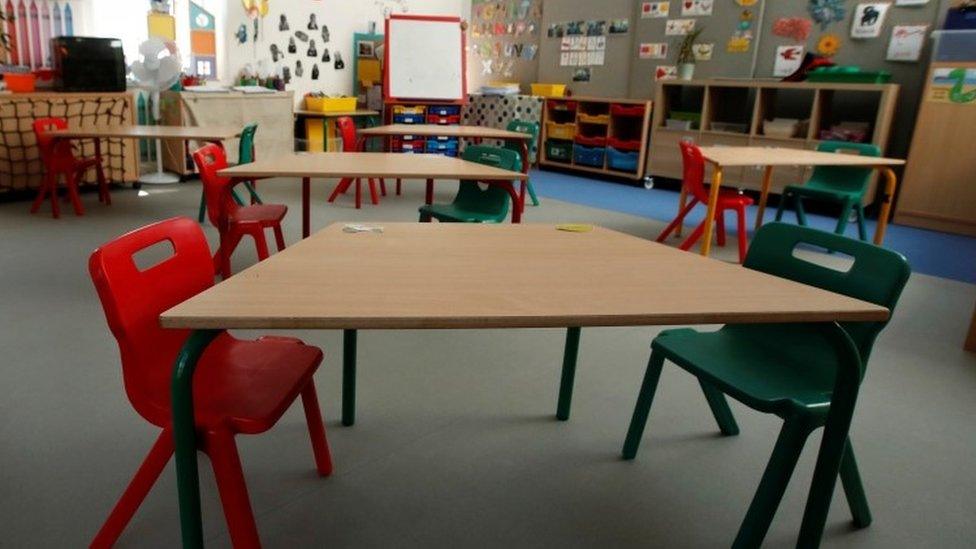
- Published4 June 2020
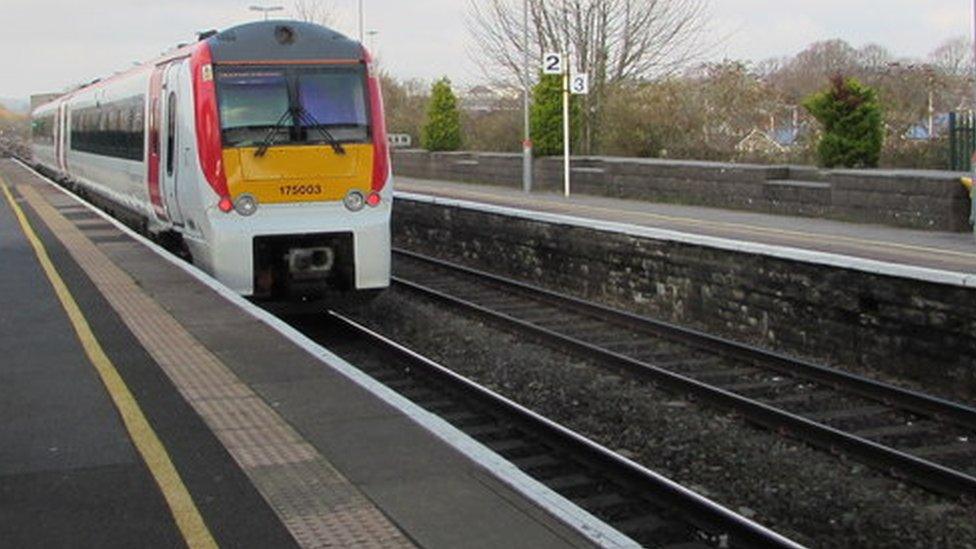
- Published3 June 2020
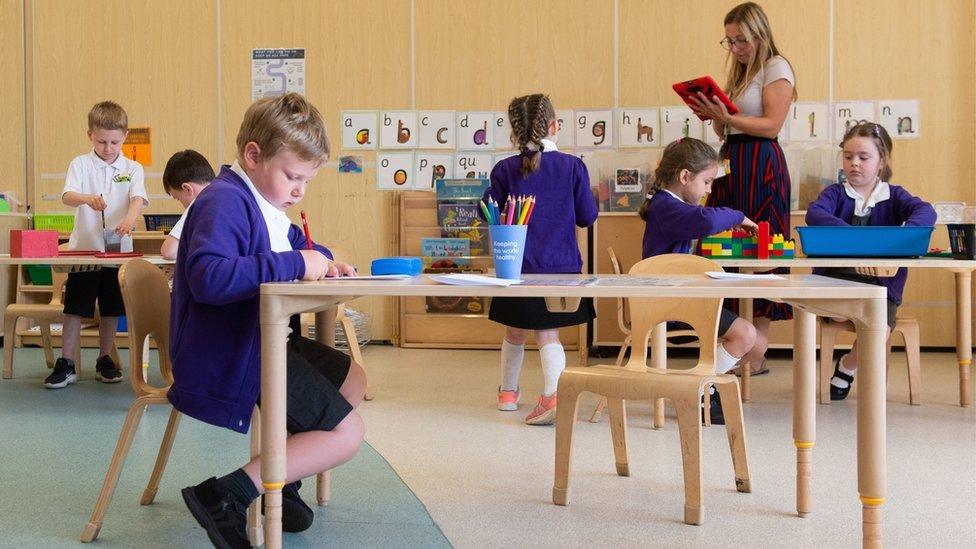
- Published14 May 2020
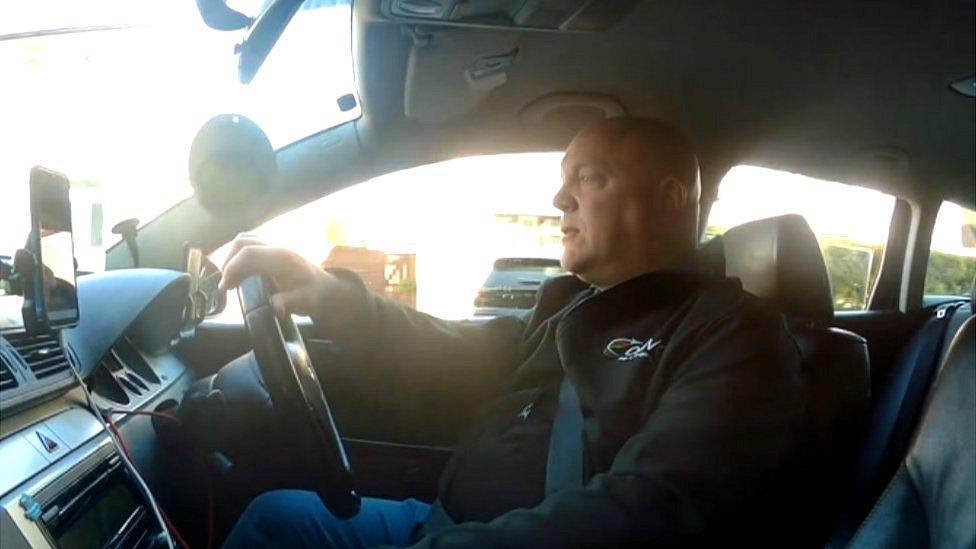
- Published7 May 2020
